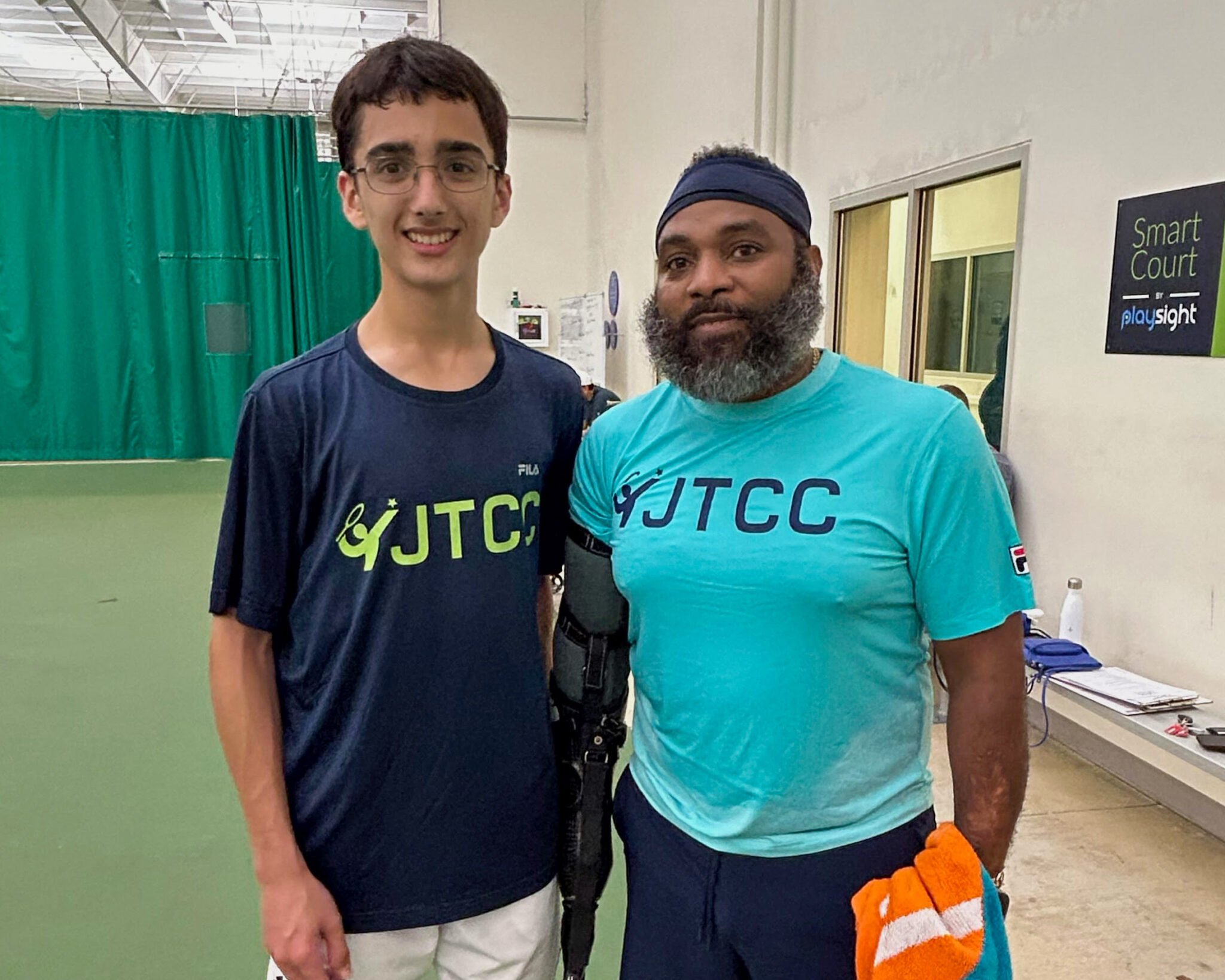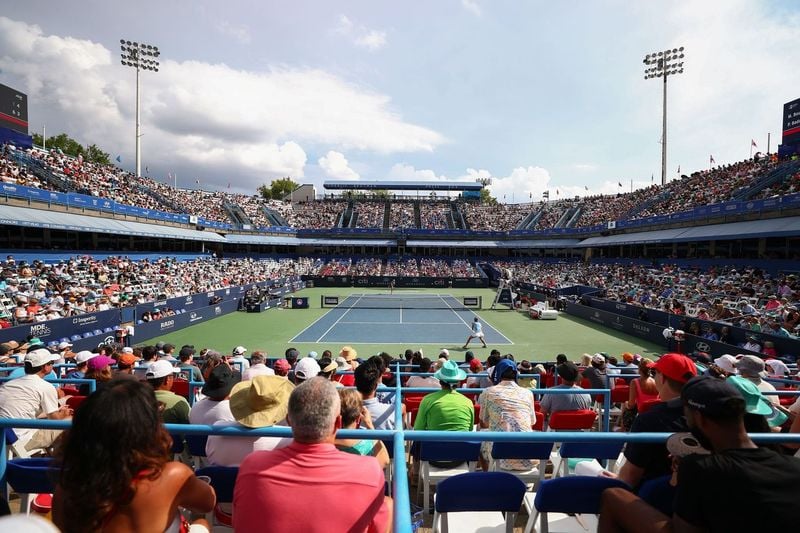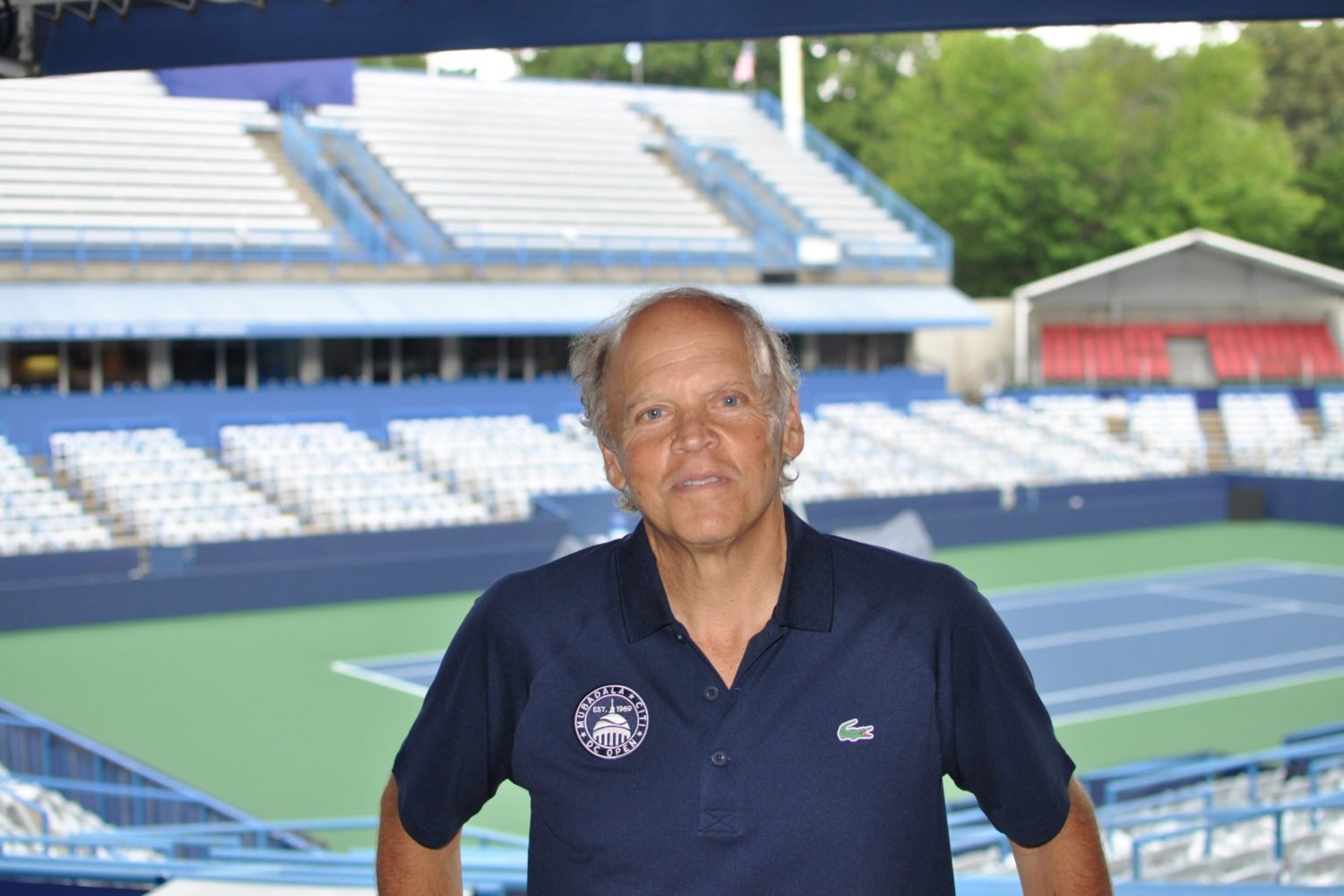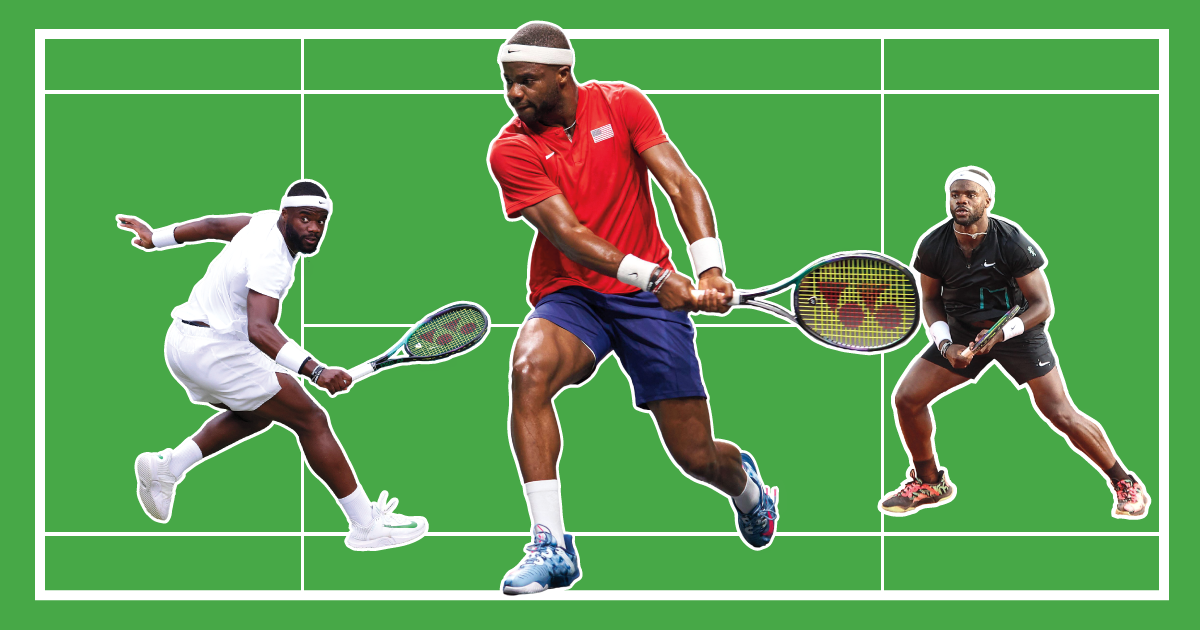Bodi De, a high school junior in Chevy Chase, keeps a busy schedule. In addition to his coursework, he runs on his school’s track team, plays tennis, and, in 2023, cofounded a nonprofit with his sister Maya to boost awareness of a lesser-known form of adaptive tennis: para standing tennis.
The sport is played similarly to the standard game of tennis, but is specifically made for disabled people who have limb differences, low vision, or any other disability, but prefer to play standing rather than in a wheelchair.
De started playing tennis six years ago with the Junior Tennis Champions Center, using the sport to help him deal with his own disabilities, a speech delay and ADHD. He says the impact of tennis on his life, plus his experiences volunteering with the center’s adaptive tennis program, which serves wheelchair users, veterans, and people with intellectual disabilities in addition to para standing players, inspired him. “Even though tennis can be an individual sport,” he says, “I want to bring a community together.”
This past April, the De siblings’ organization, Para Standing Tennis DMV, held a clinic at the Georgetown Prep Tennis Club alongside the Junior Tennis Champions Center. When his sister left to attend the University of North Carolina at Chapel Hill this fall, De continued their efforts—this time bringing the clinics into the District. The first of three scheduled DC clinics took place Saturday at the Washington Tennis & Education Foundation in Fort Dupont.
Among the participants in the clinic was Kemit-Amon Lewis, a quadruple amputee who moved to Chevy Chase from Florida in June for work. Lewis, who is 41, played tennis on Savannah State University’s Division I team before he lost his right leg, right hand, left fingers and left toes in 2019. After his amputation, he continued to play with a custom-fitted prosthetic, recently playing in the Para-Standing Tennis World Championships and in an exhibition at Wimbledon. After moving to DC, Lewis turned to the Junior Tennis Champions Center to continue playing tennis and discovered the clinics. As a high-level player, he hopes to inspire other disabled athletes to continue in the sport.
“I think me being there helps, especially the newer tennis players, to see creative benchmarks for themselves, to see where they could go, and to realize that there is no difference that should hold you back,” he says.
The clinics are open to any disabled player regardless of prior tennis knowledge. In their first clinic, players drilled warmups and basic forehand and backhand strokes, but De says another goal of the clinic was to get to know each athlete to provide them with a specialized experience.
“[I want to] get to know them both as a person, as a player, and I hope that they want to come back because they had a lot of fun and built friendships, because that’s what this is all about,” he says.
The remaining para standing tennis clinics held by Para Standing Tennis DMV, the Junior Tennis Champions Center, and the Washington Tennis & Education Foundation are scheduled for October 19 and November 9. More information can be found on Para Standing Tennis DMV’s website.

















